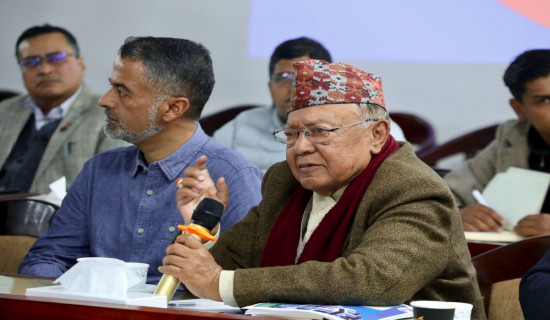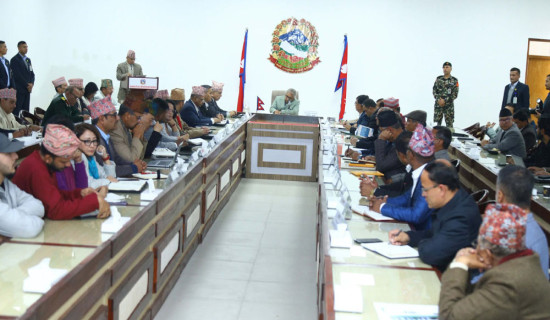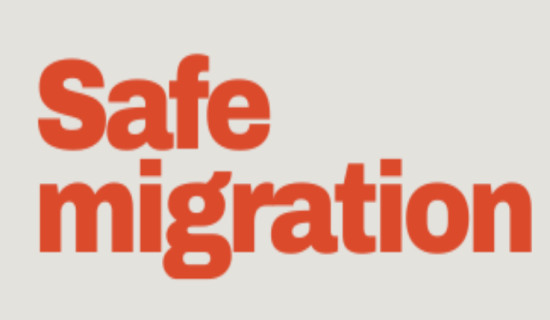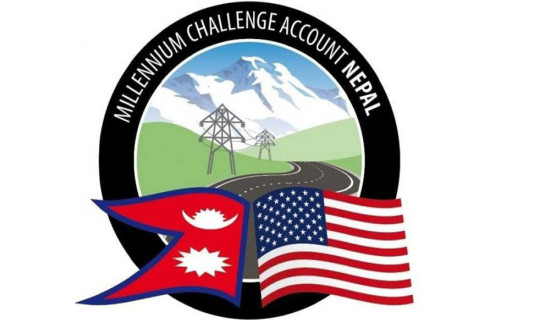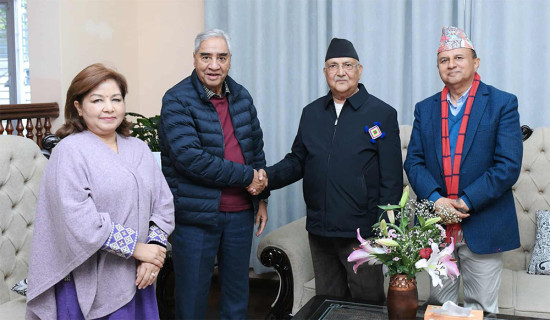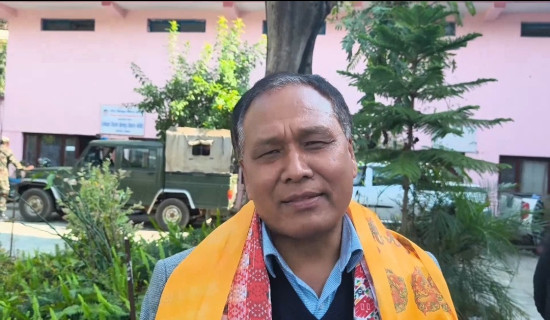- Monday, 22 December 2025
Polls Reinforce Democracy
Elections for the federal and provincial legislatures will take place across the country on November 20. The five-party coalition government last Thursday made a decision to this effect. Nearly every political party, including the main opposition and others, praised the government's declaration. Shortly after the government announcement, the National Election Commission (EC) stated that it would concentrate on all election-related preparations to hold the elections for the federal and provincial legislatures on the specified date in a single phase. The EC urged the government to give it the funds it needs as well as the essential logistics and security equipment to allow it to conduct elections in a free and fair manner in about four months.
It is encouraging to see that the government did not dilly-dally in declaring the poll date. The opposition groups had earlier accused the government of planning to delay the elections under various pretexts, which turned out to be baseless now. The main opposition chair was vocal in accusing the government of not being serious about declaring the poll date. However, following the government's announcement, the opposition was left with no choice but to applaud the timely announcement of the election date. The election date - November 20 - appears to provide the political parties, election officials, and security agencies plenty of time to get everything ready. Meanwhile, it appeared that the government chose the day intending to give voters a convenient time to visit the polls and cast their ballots.
Another facet of the coming election is - the ruling coalition has decided to contest elections by having an electoral alliance. On November 20, they will compete for 275 members of the House of Representatives —165 under the first-past-the-post (FPTP) election system and 110 under the proportional representation (PR) system. On the same day, they would field 550 members for the seven provincial assemblies. For provincial parliaments, the voters will elect 330 members under the direct election system and 220 under the PR system in all seven provinces' parliaments. If the May local polls outcome is any indication, the coalition partners will sweep the November election, which will place them in a favourable situation to form governments - at the centre and in seven provinces. The coalition partners will have two objectives when they go to the polls - they will need to organise elections and fairly win the elections.
Periodic elections, without doubt, are the pillar of democracy. The country must hold elections for local governments, provincial legislatures, and the federal parliament every five years, according to the constitution. After the promulgation of the current charter, the nation elected federal and provincial governments for the first time in November 2017. The upcoming elections will be the country's second such event. The nation will no doubt hold the coming election successfully under the capable leadership of Prime Minister Sher Bahadur Deuba, just as it did in 2017 when the nation held its first federal and provincial elections under Deuba's premiership. PM Deuba, his team of ministers, the members of the coalition, and his party members have shown that they have the skills and confidence necessary to conduct elections in an orderly manner. The election on November 20 will not be any different, given the record of the PM Deuba-led administration.









